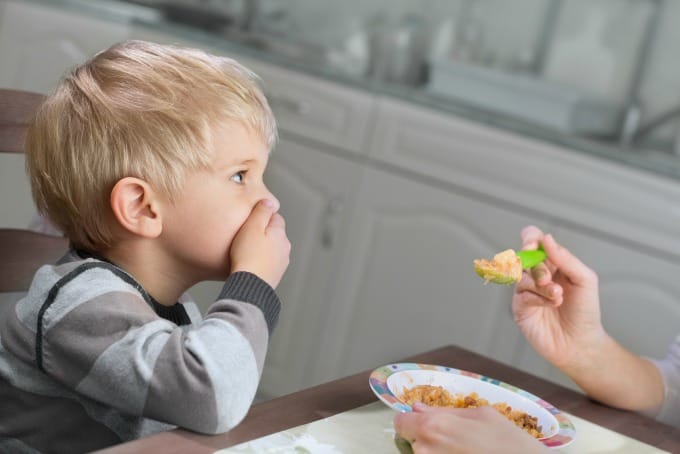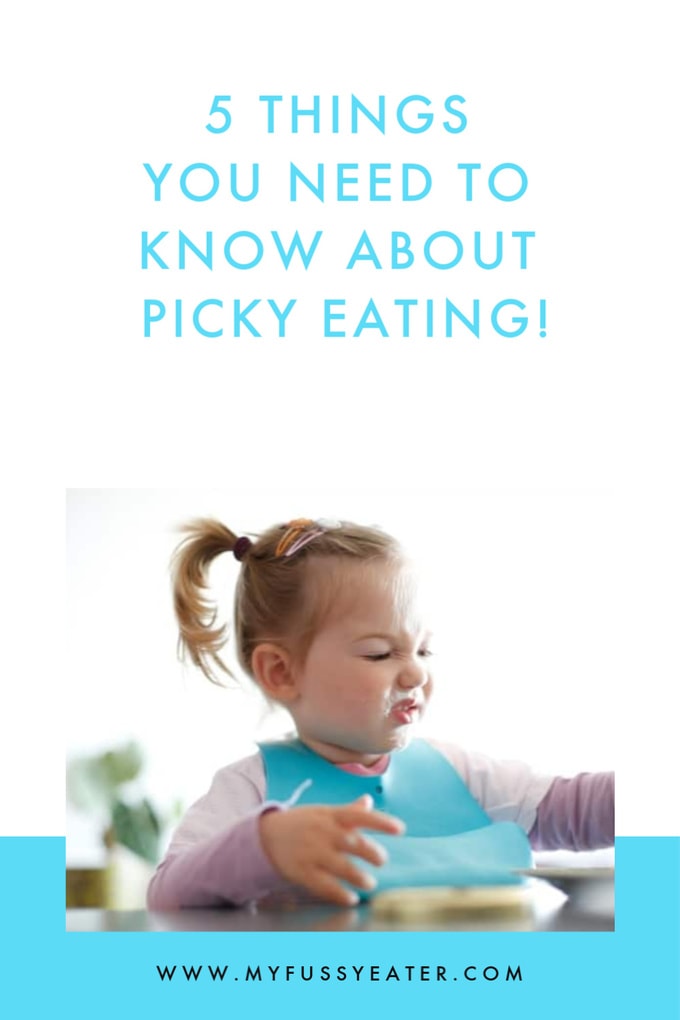
Picky eating is an incredible challenge for parents, affecting approximately a quarter of young children. If your little one often rejects food or clings to a very narrow range of foods, you are not alone. However, knowing this doesn’t make it any less frustrating! When mealtimes are stressful, this can have a huge impact on your day-to-day life.
If you are worried about your child’s picky eating, feeding consultant Jo Cormack is here with five essential things you need to know:
1. Picky Eating is NOT bad behaviour
It is very easy to conceptualise picky eating as ‘naughty’. You want your child to try their cabbage, they refuse. Is this just disobedience?
Interpreting picky eating as bad behaviour can miss your child’s perspective. My clinical work is all about understanding what is behind children’s responses to food – are they struggling with the smell or texture? Are they scared of unfamiliar foods? Have they had a reason to form negative associations with food in the past, such as reflux or health problems?
Some children find processing the sense data we get from food extremely difficult. Ask yourself whether your child is actually anxious about trying something new or disliked. Food anxiety is often at the heart of picky eating.
For some children, picky eating can be about developmentally normal boundary testing or power play, but for others, it can be more complicated than that.
2. The Harder You Try The WORSE It Gets
This is what I call the ‘picky eating paradox’. The more effort you put into getting your child to eat, the worse their fussiness will become. Research shows that putting pressure (even gentle pressure) on children to eat, makes their eating worse.
This is partly because when we focus on a particular food and tell children they have to try it, children frame it as ‘hard work’ and like it less. Scientists have found that this is especially true when you are making one food conditional on eating another. So every time you say “Eat one more mouthful of cabbage and you can have your ice-cream” you’re actually making your child like cabbage less and ice-cream more.
Finally, pressure increases children’s stress levels, which has the effect of suppressing appetite. By telling your child to eat, you are literally making them less hungry. Remember that your notion of pressure may be different from your child’s. The ‘one bite rule’, lots of praise for eating and persuasion based on how tasty and nutritious a certain food is, can all be experienced as pressure.
3. Never Offer Alternatives
This piece of advice always comes as a relief to the parents who have found themselves chained to the kitchen, coming up with dish after dish until they hit on something their child will eat. When your child has rejected what you’ve made, the urge to provide an alternative that they will accept, is an understandable one. It is usually born of anxiety about their health and levels of nutrition. Or just that you don’t want them to go to bed hungry.
It’s easy to stop offering alternatives if you also remember another rule – to always make sure that one or two elements of every meal and snack are things your child will reliably eat. That way, you can let them decide whether to eat what you have provided, or not. You can be confident that there was something available that they liked (alongside new or disliked foods) and you can respect their eating decisions.
The same goes for snacks – it’s great to serve snacks in an age-appropriate and structured way, but not as a response to your child leaving food. If they were served something for their dinner that they usually eat happily, but they chose not to eat it, you don’t have to make them a snack half an hour later if they say they are hungry.
4. Weight & Growth Checks Are Essential
As adults, we often overestimate how much children need to eat and this contributes to the kind of pressurising tactics we looked at earlier. Unless you are an elite athlete, (I’m not) our food needs are pretty constant in terms of calories and nutrition.
This isn’t the case with children. They grow in phases and their food needs can change day on day, week on week, month on month. And this is why we need to trust their eating decisions. Perhaps we think they needed that whole plate of food, but maybe they know best and it was more than they required.
To truly move away from the mindset where you are in charge of deciding how much your child needs to eat, you need to be confident that they are healthy and thriving. Get their weight and growth checked by a health professional. This will probably give you the reassurance you need, and if a problem is detected, you will be on the path to further assessments and support.
5. Picky Eating Is NOT Your Fault
Of course, there are some things that we can do as parents which make picky eating less of a problem, and some things we can do which will make it worse. But to see your child’s relationship with food as ‘your fault’ is mistaken. Sometimes all that stress and worry about your child’s eating can morph into a sense of guilt.
Remember that all the decisions you have made along the way, were for the right reasons. It’s relatively easy to access information about childhood nutrition, but there is a lack of good quality resources which help parents understand the psychological and behavioural side of food and feeding.
The way you have approached feeding your child historically, will have been based on the information you had at the time. If you have decided to make some changes, congratulate yourself for tackling this challenge head-on. Don’t beat yourself up for what may have gone before.
You only have to look as far as the enormous number of parents who have one child who is super picky and one who eats everything – despite almost identical parenting and environment – to see that genes have a role to play. Whatever the media, society and your mother-in-law might think, picky eating is not your fault.

Jo Cormack is a therapist and feeding consultant based in Lincoln, UK. She lives with her husband and three children and writes extensively about picky eating and feeding children. Jo works with families of picky eaters around the world, via skype and through her online training for parents. She is currently doing a PhD exploring picky eating and her second book will be coming out at the end of this year.
Jo blogs at: Emotionally Aware Feeding
You can find Jo on Twitter @Jo_Cormack
Or come and say hello in her facebook group, Parenting Picky Eaters, which she runs with Australian feeding specialist, Simone Emery.






Cora says
So pleased I read this! It has actually really put my mind at rest about my little one’s picky eating. Thank you so much for sharing.
Lucy R says
A wonderful post, thank you! Will definitely check if Jo’s book.
We’ve found some success with a book called ‘Helping Your Child With Extreme Picky Eating’ (by Rowell & McGlothlin) and while the picky eating is still there, meal times are less stressful for us all and the occasional new food does get tried. The main help has mostly been managing our expectations as parents and leaving our son to make his own decisions about whether and how much he eats while we decide what and when to serve.
Good luck to the other parents of picky eaters! This blog is my favourite for new meal/snack ideas. A big thank you!! 🙂